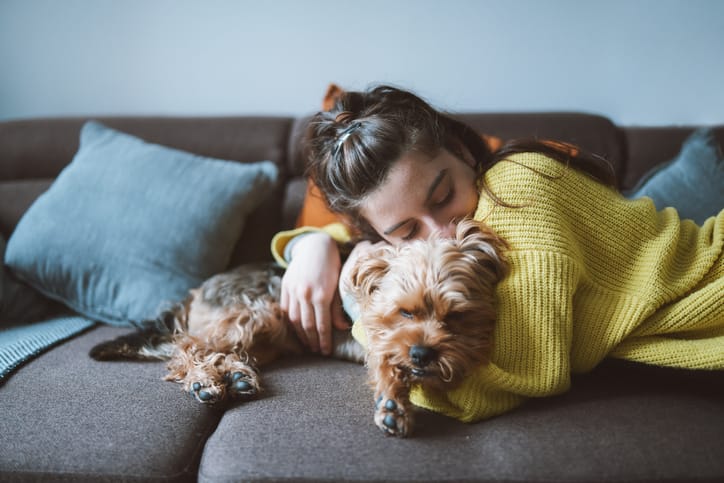If you have a dog, you likely know all too well the joy of kissing and cuddling it 24/7. They have such adorable little faces and they’re just so squishy that it’s impossible to resist. However, one psychologist has warned against hugging your dog, claiming doing so could lead to some serious consequences. While you might be doing it to show love and affection to your pet, that doesn’t mean it’ll understand your intentions!
In a piece written for Psychology Today, Dr. Stanley Coren shared that his own 6-month-old puppy became extremely stressed when a stranger rushed over to it to give it a hug. The puppy was looking away frantically and Dr. Coren told the woman not to hug dogs because they don’t like it, a statement that was met with “disbelief.”
While hugging human children comes with a whole host of benefits, the same can’t be said for hugging your dog. Dogs aren’t humans, no matter how much we might treat them as if they are. As such, we need to behave accordingly when it comes to giving them their space.
“Dogs are technically cursorial animals, which is a term that indicates that they are designed for swift running. That implies that in times of stress or threat, the first line of defense that a dog uses is not his teeth, but rather his ability to run away,” he writes.
“Behaviorists believe that depriving a dog of that course of action by immobilizing him with a hug can increase his stress level and, if the dog’s anxiety becomes significantly intense, he may bite.”
A dog doesn’t have to be growling or bearing its teeth to let you know it’s feeling stressed, anxious, or angry. Coren says more subtle warning signs include the dog turning its head away or even squinting or partly closing its eyes.
“One common visible sign of stress or anxiety is when the dog’s ears are lowered or slicked against the side of his head. Lip licking or licking a person’s face can also be signs of anxiety, as can yawning or raising one paw,” Cohen continues.
Admittedly, all dogs are different, and some may appear to enjoy physical affection. Nevertheless, it’s important to listen to the messages our pets are trying to send us and act accordingly. Love your dog the way it wants to be loved, not the way you want to do it.



